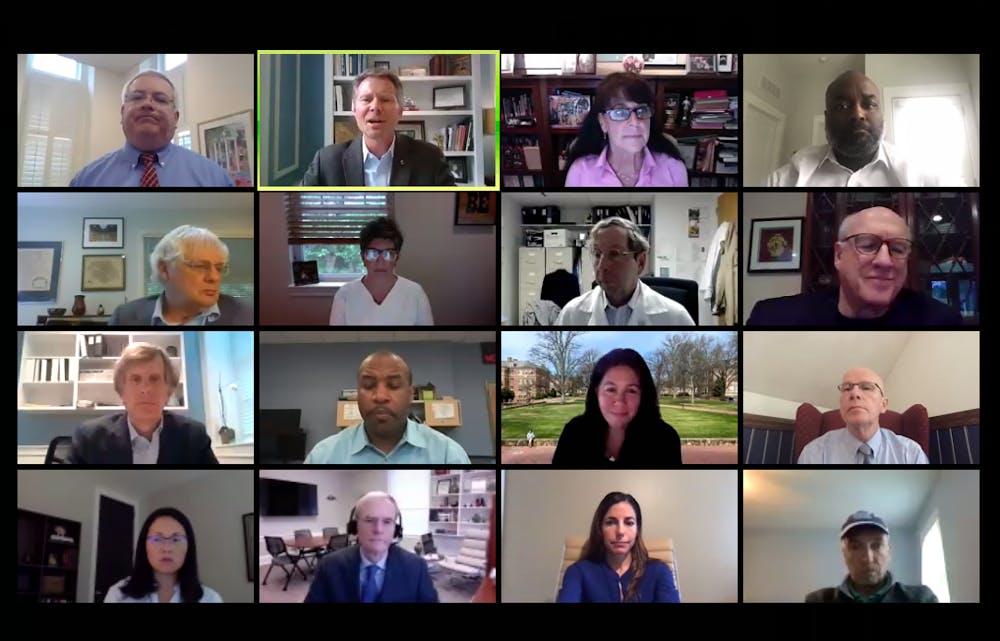UNC Chancellor Kevin Guskiewicz and Executive Vice Chancellor and Provost Bob Blouin hosted a webinar Wednesday to discuss UNC’s options for safe re-entry in the fall in response to COVID-19.
They were joined by several senior leaders to discuss operations of classrooms, dorms, labs, dining halls and other facilities. The webinar was for UNC employees to learn about the options under consideration and ask questions.
The options are part of a framework titled the Carolina Roadmap, which is expected to officially launch next week. Guskiewicz said action plans of the framework include community standards for health and safety, return-to-work guidelines, on-campus research operations and instructional strategy and classroom utilization. There are also plans surrounding student support, campus life and the student experience, as well as housing.
“We’re not in a race to be first to reopen campus operations — our on-campus operations,” Guskiewicz said. “But we are in a race to be right, and be as right as possible.”
Options for academic instruction
Abigail Panter, senior associate dean for undergraduate education, discussed four different types of instruction that the university is planning for, with 4,700 courses and 15,000 sections. Panter said these options take into account students who may be unable to return to campus for a variety of reasons.
“It may be their health, it may be an inability to secure a visa,” Panter said. “But these are the students who rely on us and work with us to engage in high impact academic experiences so that they can keep making steady progress in their degree programs.”
The four options for instruction that Panter outlined were:
- Face-to-face model: courses that are for on-campus and in-person learners, with some remote component scheduled,
- High-flex model: courses that meet in person, but students may join remotely and synchronously, and classes can be recorded for asynchronous learning,
- Recitation or remote plus recitation: remote lectures that would be supplemented by face-to-face sections,
- Remote only: online courses taught solely synchronously or asynchronously, or a combination of both.




